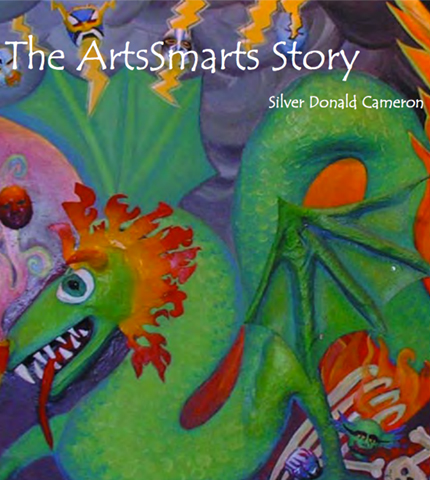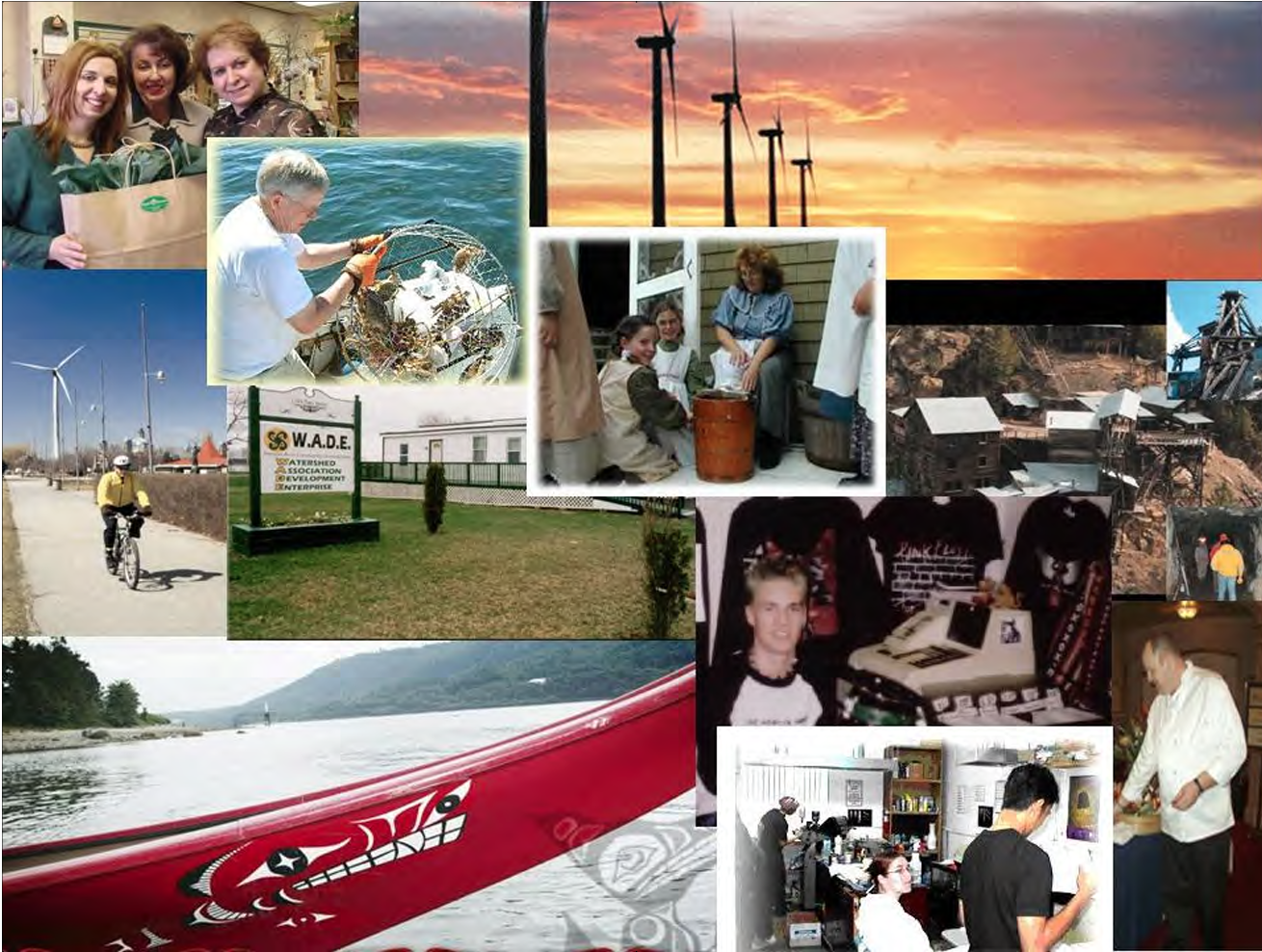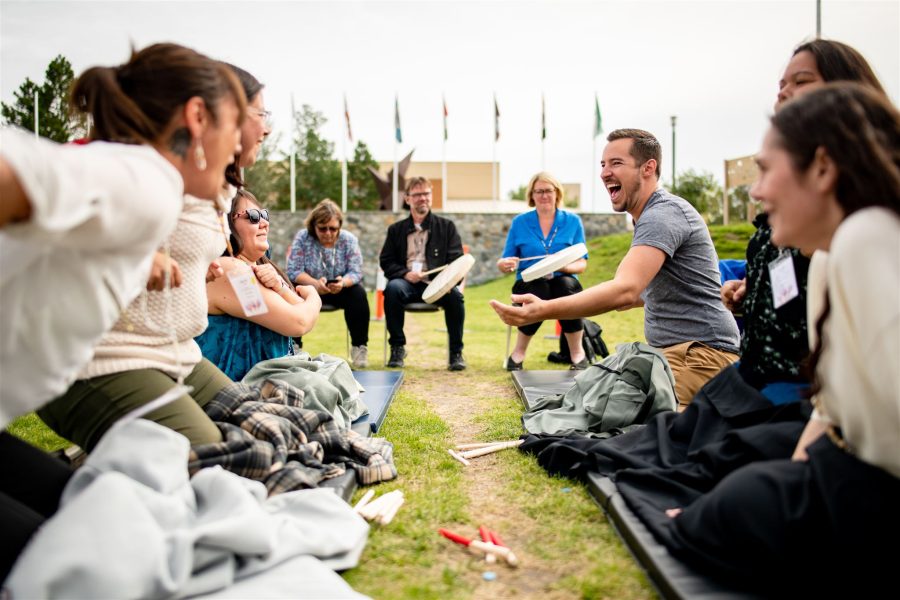Past Initiatives

Our past initiatives
Over the years, the Foundation developed and ran several national initiatives aimed at creating positive impact in communities across the country. This page provides an overview of McConnell’s initiatives between the mid-1990s to 2021.
ArtsSmarts (1996–2012)
ArtsSmarts used the arts to encourage student learning and to build a more inclusive educational system. The initiative demonstrated how together, creativity and community engagement can paint a brighter future for our students and schools. Funding began in 1996 and spanned over a decade, totalling $11.1 million. While the McConnell initiative has sun-setted, ArtsSmarts continues to live on as a network of arts, education and community organizations. Read the ArtsSmarts Story.

Community Economic Development Technical Assistance Program (CEDTAP) (1997–2008)
The mission of the program was to enhance the legitimacy and efficacy of the community-based organizations engaged in community economic development. The program was housed at the Carleton University Centre for Community Innovation and received $9.2 million in funding.

Supporting Family Caregivers (1999–2014)
Canada’s family caregivers, play a critical — but formally unrecognized — role in our society. This initiative tested new ways of helping family caregivers experience relief physically, emotionally, psychologically, socially and spiritually by funding 13 community-based projects, totalling $6.98 million.

Green Street (1999–2010)
Green Street was a national program equipping young people with the skills to contribute to a sustainable future. Working in collaboration with their schools and communities, students learned about the world in which they live, and how to look after the one they are inheriting. Over $9.5 million was allocated to this initiative over 11 years.

Environmental initiatives (2000–2021)
Since 2000, McConnell has funded several initiatives aimed at addressing the climate crisis and other environmental issues. Most notably, starting in 2013, the Renew initiative aimed to protect the long-term ecological health of the planet, while building social equity and resilience. To achieve this, the Renew initiative focused on encouraging low-carbon models in the corporate, community and public spheres, and by supporting effective national and regional climate and energy policies. Over the course of two decades, roughly $11 million was allocated to this initiative. Our environmental initiatives were transitioned into our Climate focus area in 2021.

Vibrant Communities (2001–2014)
Vibrant Communities was a partnership between the Tamarack Institute, the Caledon Institute of Social Policy and the McConnell Foundation. The initiative headed a network of 100 cities to create comprehensive poverty reduction strategies. Several cities reported a 10% reduction in poverty. The program received $7.3 million in funding over 12 years. Since 2014, Vibrant Communities has been managed by the Tamarack Institute. Learn more on the Tamarack website.

Community Service Learning (2004–2013)
Community Service Learning (CSL) was designed to achieve community goals and to instill in students a sense of civic engagement through volunteering experience. The program also brought community knowledge into universities, helping to influence teaching practices and curricula. The initiative received $9.7 million in funding. Read the Getting Wisdom report to learn more.

Sport for Development (2006–2016)
The Sport for Development initiative envisioned and supported a network of community leaders. Over the years, this initiative supported hundreds of community-based sport projects, influenced the development of sport policy, and promoted skills development. Over a decade, $7.7 million was allocated to the Sport for Development initiative. Learn more in the Good Sport report.

ALLIES (2007–2014)
ALLIES was a joint initiative of the Maytree Foundation and the McConnell Foundation. It encouraged employers to improve employment practices for immigrants, to contribute both to immigrants’ wellbeing and, ultimately, a more prosperous and resilient Canada. The initiative ended in 2015 and received $2.5 million. Learn more in the ALLIES final report.

Sustainable Food Systems (2010–2021)
The Foundation’s Sustainable Food Systems initiative helped build food systems that create vibrant local economies, ensure environmental sustainability and contribute to health and wellbeing for all people. Over a decade, the initiative focused its work on three major programs: 1) the regional value chain program; which aimed to expand regional supply chains for sustainable food, 2) deepening food security across communities, 3) the institutional food program which aimed to help institutions play a transformative role in creating socially, economically and environmentally viable food, which culminated in the Nourish program (see below). Roughly $15.7 million was allocated to this initiative between 2010-2021.

Innoweave (2011-2023)
The Innoweave initiative provides civil society organizations with access to social innovation tools. In cooperation with a network of coaches, Innoweave helps non-profits and social entreprises clarify their goals and obtain the support they need to achieve their desired outcomes. They work alongside a range of partners — including content experts, foundations, and governments — to leverage our resources in pursuit of greater impact in our communities. In 2023, Innoweave moved to MakeWay Foundation. Learn more about Innoweave's offering.

Cities for People (2012–2021)
The Cities for People initiative aimed to support inclusive urban innovation that contributes to resilient cities where all people and nature can flourish. Following an experimental phase, in 2016 Cities for People began working with other entities to develop an approach for changing cities. We partnered with institutions, municipalities and non-profit organizations to increase equality, strengthen our civic assets through placemaking, enable city labs to pilot experiments for transformative change, and support urban innovation networks. Between 2012-2021, over $14.3 million was allocated to this initiative. Learn more in the Cities for People Experimental Phase Report.

The McConnell Reconciliation Initiative (2013–2021)
After a decade of funding organizations working to address reconciliation, we officially formed the McConnell Reconciliation Initiative in 2013. Inspired by the courage of residential school Survivors, the Reconciliation Initiative aimed to support the creation of a reconciliation economy where wealth and resources are equitably shared and sustainably managed. Over $24 million was allocated to this initiative over eight years. In 2021, this initiative became the Reconciliation focus area.

Re-Code (2014–2021)
Re-Code supported the capacity of schools to weave social innovation tools and practices into the very fabric of campus and community culture. Re-Code’s vision was to transform higher education, inviting universities and colleges to redesign their institutions from the inside out, and to disrupt business as usual. Over $10 million in funding was allocated to the Re-Code initiative. Learn more in Re-Code's final report.

WellAhead (2015–2021)
WellAhead aimed to improve child and youth mental health by integrating social and emotional wellbeing from kindergarten to grade 12 education. It focused on long-term change to better incorporate social and emotional wellbeing into the day-to-day life of schools and classrooms. Throughout its five-year term, the initiative supported diverse efforts to promote learning and innovation in this space; convening leaders in education and health together, funding grassroots initiatives, and leading an innovation lab. Over $8.3 million was allocated to this initiative. Learn more in WellAhead's final report.

Nourish Leadership becomes an independent charitable organization
Seeded through the Foundation’s Sustainable Food Systems initiative, Nourish Leadership is a network of leaders, organizations, and communities, shifting the focus upstream to work preventatively through food in health care. They work to equip innovative individuals and teams, empowering bold leadership in climate action and health equity.

